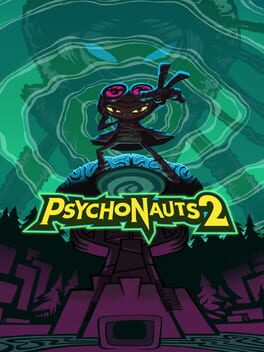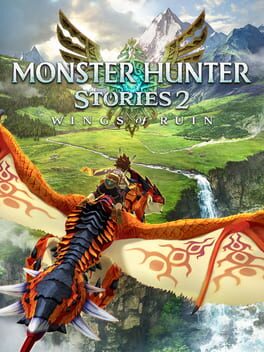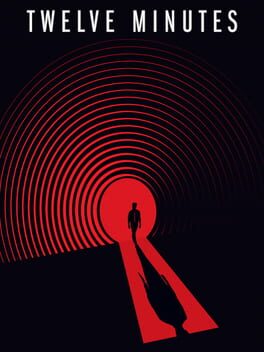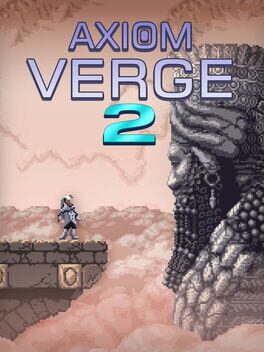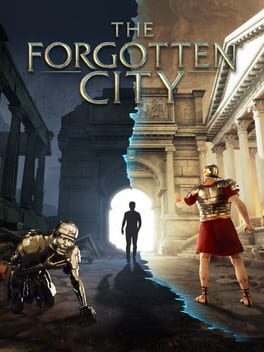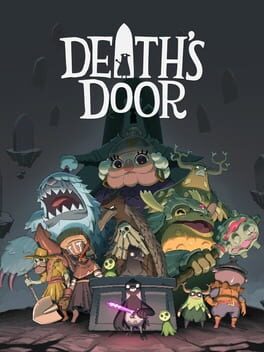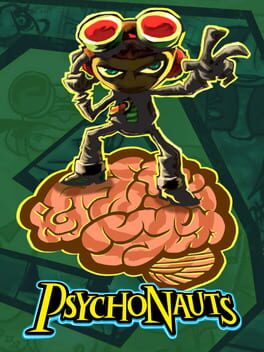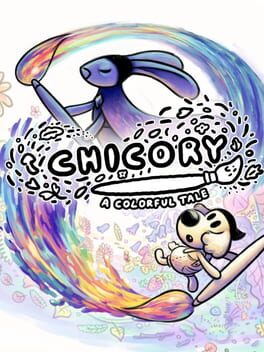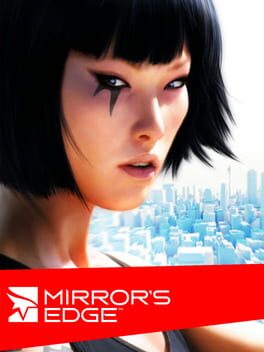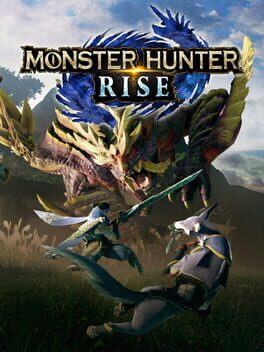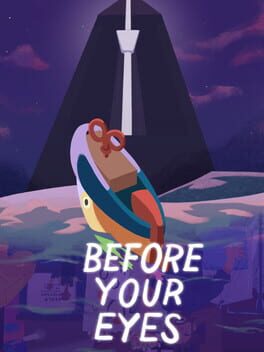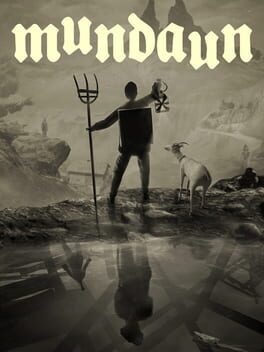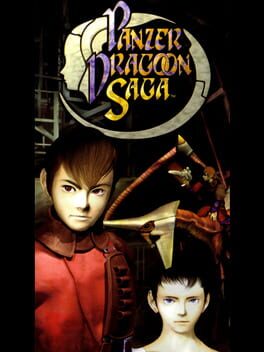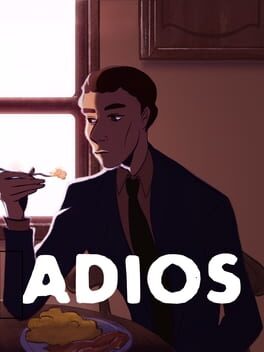2021
Psychonauts 2 is a flawless sequel in almost every way. It is actually astounding how much this game improves on an interesting but shaky foundation found in the first game.
Sequels in games have the benefit of knowing what works and what doesn't in a concept and can focus on honing in on polish and extension of already established systems and ideas. Now, Psychonauts 2 is a special case where the first one wasn't a hit out of the gate and funding for the sequel was coming in through crowdfunding, which isn't necessarily the best starting position. Now, cut to Microsoft coming in with the big bags and you can really tell how much it must have helped with this game.
The amount of super polished, completely unique spaces in this game is staggering and not only that but even one of my biggest gripes with the first one - the weird, disconnected structure is not only fixed but stands now as an absolute highlight. The story and writing now has tons of mostly new characters to rely on and really flesh out, delivering a surprisingly gripping and incredibly witty narrative full of heart and newlyfound respect to the themes it uses throughout. In comparison the first game really felt superficial and juvenile in its handling of the psychological aspects of the concept, mostly using it for interesting gameplay scenarios, whereas Psychonauts 2 really goes all in committing to telling stories about mental health and trauma that come up naturally with the concept of traversing people's psyches. And it manages this while keeping a sharp sense of humor that projects an aura of almost naive sincerity I have come to appreciate a lot in media.
Now, I said this was an almost flawless sequel and the one big flaw is unfortunately the combat. Even with new upgrades, augmentation pins and general variety of abilities the combat just feels hollow. From the first fight to the last there was never any true feeling of control and satisfaction derived from beating up enemies. The combat system is plagued by awkward cooldowns, annoying ability rebinding, lackluster feedback and a general lack of impact. This is not a combat game, therefore this issue is never elevated to being really problematic, it is just an unfortunate thorn in the side of an otherwise almost perfect adventure.
Sequels in games have the benefit of knowing what works and what doesn't in a concept and can focus on honing in on polish and extension of already established systems and ideas. Now, Psychonauts 2 is a special case where the first one wasn't a hit out of the gate and funding for the sequel was coming in through crowdfunding, which isn't necessarily the best starting position. Now, cut to Microsoft coming in with the big bags and you can really tell how much it must have helped with this game.
The amount of super polished, completely unique spaces in this game is staggering and not only that but even one of my biggest gripes with the first one - the weird, disconnected structure is not only fixed but stands now as an absolute highlight. The story and writing now has tons of mostly new characters to rely on and really flesh out, delivering a surprisingly gripping and incredibly witty narrative full of heart and newlyfound respect to the themes it uses throughout. In comparison the first game really felt superficial and juvenile in its handling of the psychological aspects of the concept, mostly using it for interesting gameplay scenarios, whereas Psychonauts 2 really goes all in committing to telling stories about mental health and trauma that come up naturally with the concept of traversing people's psyches. And it manages this while keeping a sharp sense of humor that projects an aura of almost naive sincerity I have come to appreciate a lot in media.
Now, I said this was an almost flawless sequel and the one big flaw is unfortunately the combat. Even with new upgrades, augmentation pins and general variety of abilities the combat just feels hollow. From the first fight to the last there was never any true feeling of control and satisfaction derived from beating up enemies. The combat system is plagued by awkward cooldowns, annoying ability rebinding, lackluster feedback and a general lack of impact. This is not a combat game, therefore this issue is never elevated to being really problematic, it is just an unfortunate thorn in the side of an otherwise almost perfect adventure.
This would have been my favorite game ever if it came out 10 years ago at the height of both my Pokemon and Monster Hunter obsessions. Today, it is a really good game that suffers from a lack of narrative design ambitions and a resulting super repetitive main gameplay loop that is enhanced by a general slowness of combat, even at 3x speed due to the dedication to transition animations for literally everything.
The monstie system with all that it entails, from hatching eggs to transfering DNA blows Pokemon out of the water and is super addictive to pursue, offering lots of rewards if you decide to put the time in.
The whole presentation and animations are absolutely wonderful and add so much to the experience, same with the expanded combat system that kept me engaged this time around where the first game failed and made me actively feel like the game is supposed to be baby's first JRPG not intended for adults to enjoy. This game feels much more mature and balanced for all audiences, which convinced me to invest my time and see it through, which I don't regret at all, the final boss fight was pretty impressive and if I didn't already take almost two months to finish the story, making me completely burn out on the game, I would happily jump into the post-game stuff which features all the best monsters of course but as it is, I will leave it at that .
The monstie system with all that it entails, from hatching eggs to transfering DNA blows Pokemon out of the water and is super addictive to pursue, offering lots of rewards if you decide to put the time in.
The whole presentation and animations are absolutely wonderful and add so much to the experience, same with the expanded combat system that kept me engaged this time around where the first game failed and made me actively feel like the game is supposed to be baby's first JRPG not intended for adults to enjoy. This game feels much more mature and balanced for all audiences, which convinced me to invest my time and see it through, which I don't regret at all, the final boss fight was pretty impressive and if I didn't already take almost two months to finish the story, making me completely burn out on the game, I would happily jump into the post-game stuff which features all the best monsters of course but as it is, I will leave it at that .
2021
This game was incredibly frustrating to play. From the cast and pedigree of Annapurna Interactive, which I fared well with trusting blindly until this point, I went into this expecting a highly condensed, super polished experience.
This game is not that, it is incredibly janky, stiff and annoying to control. It puts tons of remarkable emphasis on the reactivity achievable in this limited scope - having to keep in mind where someone can hear you talk, where someone is standing at certain times or other minor details - ultimately, though this stuff boils down to a very limited interaction space and even in this limited scope the game can't keep up with the reactivity required to fully immerse the player. Dialogue options persist throughout the game even when the player's and character's knowledge change, reframing the context of the option, which leads to bizarre tonal whiplash and potentially ruins a cycle that required annoying, tedious preperations you have speedran through for the fifth time in a row to try out one minor change.
The mystery and ultimate narrative package as a whole is what kept from dropping the score lower, because having seen it through, the threads it lays throughout the experience are well crafted to keep you entertained for the duration of the game and while the execution wasn't perfect or even great most of the time, it came together in the end in a way I did not see coming, leaving well crafted room for interpretations.
This game is not that, it is incredibly janky, stiff and annoying to control. It puts tons of remarkable emphasis on the reactivity achievable in this limited scope - having to keep in mind where someone can hear you talk, where someone is standing at certain times or other minor details - ultimately, though this stuff boils down to a very limited interaction space and even in this limited scope the game can't keep up with the reactivity required to fully immerse the player. Dialogue options persist throughout the game even when the player's and character's knowledge change, reframing the context of the option, which leads to bizarre tonal whiplash and potentially ruins a cycle that required annoying, tedious preperations you have speedran through for the fifth time in a row to try out one minor change.
The mystery and ultimate narrative package as a whole is what kept from dropping the score lower, because having seen it through, the threads it lays throughout the experience are well crafted to keep you entertained for the duration of the game and while the execution wasn't perfect or even great most of the time, it came together in the end in a way I did not see coming, leaving well crafted room for interpretations.
2021
What I will give the biggest credit in Axiom Verge 2 are the bold aesthetic and game design decisions making up the whole structure of this game. This isn't a by the books retro-style metroidvania set in a grim alien world. Where the first game was Alien, this feels more like The Thing and Dune depending on the region. The game draws from refreshingly untapped cultural backgrounds manifesting in the world and music and overall feeling. But not only the aesthetic is unique, the gameplay also breaks major conventions - I mean, there are no bosses tied to progression or abilities at all and the game jumps between two dimensions constantly, mixing up the way you interact with the world.
The one major criticism I have is the combat. There is a variety of (mostly melee) weapons to get but the focus on melee combat doesn't pay off unfortunately, as the combat feels clunky and unresponsive. You constantly miss enemies because you have to crouch to hit most of them and the dynamic terrain with slopes and ledges makes getting an edge over enemies difficult because they constantly change elevation leading to frustrating button mashing.
The exploration is superb, constantly feeding you new abilities to get around obstacles. These abilities can be a straightforward grappling hook or more unique mechanics that offer plenty of room for experimentation as the game gets out of your way and doesn't hold your hand to figure stuff out, even if there are a lot of really helpful quality of life additions such as custom map markers and waypoints.
Ultimately, I like this sequel probably around as much as the first one, but surprisingly for different reasons. Their differences make it easy to recommend both of them equally and while many design decisions of the second one might and will alienate some people, I will always hold it in high regard if a game makes these bold decisions.
The one major criticism I have is the combat. There is a variety of (mostly melee) weapons to get but the focus on melee combat doesn't pay off unfortunately, as the combat feels clunky and unresponsive. You constantly miss enemies because you have to crouch to hit most of them and the dynamic terrain with slopes and ledges makes getting an edge over enemies difficult because they constantly change elevation leading to frustrating button mashing.
The exploration is superb, constantly feeding you new abilities to get around obstacles. These abilities can be a straightforward grappling hook or more unique mechanics that offer plenty of room for experimentation as the game gets out of your way and doesn't hold your hand to figure stuff out, even if there are a lot of really helpful quality of life additions such as custom map markers and waypoints.
Ultimately, I like this sequel probably around as much as the first one, but surprisingly for different reasons. Their differences make it easy to recommend both of them equally and while many design decisions of the second one might and will alienate some people, I will always hold it in high regard if a game makes these bold decisions.
2021
A valiant, but ultimately messy effort. At times I was so immersed and fascinated by the world and setting that is crafted and all the systems interacting with each other only to be forced out by overall jank, repetition and systems not fully recognizing my actions. The last point is the most important one. Systemic games like this one that are built on choices, consequences and player knowledge live and die by the integrity of their simulation. What happens if the player pushes against the systems presented in the game? If the game doesn't break and even anticipated the choice a feeling unlike any other is created. The problem is, though, that you have to support an enormous number of interactions in a game where you interact with a decently sized cast of characters going about their lives in a roman city across multiple time loops. And this game unfortunately broke the illusion a few too many times for me in the end. I would still wholeheartedly recommend this game to everyone who is curious due to its low time investment, as I mentioned, this is a truly valiant effort that hits on so many points, I just wish it were a little more polished in the end. Also I was incredibly weirded out by that final ending, a bold direction certainly to put it favorably.
2021
I noticed a feeling I have when playing certain games that comes close to 'coziness' or flow. When the movement mechanics are perfectly tuned, the exploration finds the perfect balance for challenge and frequency and the game is polished to the level where you can just let yourself go completely because you are enjoying every step you take. This feeling usually leads me to spend as much time in these games as possible and tedious completionist activities flip to delicious extra juice to squeeze out of the most refreshing fruit. Well, this is certainly one of those games.
Death's Door oozes in polish and uses the third dimension to the full potential in a traditionally flat 2D genre. Style is certainly substance in this case, from fancy cinematography, beautifully layered and detailed dioramas forming a deeply intertwined and intricate level design and world to just hilariously bold title cards rivaling the ones in Control. The balancing act of humor and ernest, heartfelt storytelling works out perfectly in this bleak but intrinsically cheeky setting - you are a soul-reaping crow wielding a glowing sword arriving by bus at an office building greeted by Baul Plart after all.
Something I have to give games the highest credit for is respecting the player's time and dedication. You have an abundance of collectable items to collect and puzzles to solve but you get the option to get hints at various points that don't spoil the solution but relieve the player of needing to backtrack endlessly and should you decide to stick around after the ending and poke a bit more into the game, you will be rewarded for your time not only with a satisfying True Ending but also with great surprises and twists along the way.
Death's Door oozes in polish and uses the third dimension to the full potential in a traditionally flat 2D genre. Style is certainly substance in this case, from fancy cinematography, beautifully layered and detailed dioramas forming a deeply intertwined and intricate level design and world to just hilariously bold title cards rivaling the ones in Control. The balancing act of humor and ernest, heartfelt storytelling works out perfectly in this bleak but intrinsically cheeky setting - you are a soul-reaping crow wielding a glowing sword arriving by bus at an office building greeted by Baul Plart after all.
Something I have to give games the highest credit for is respecting the player's time and dedication. You have an abundance of collectable items to collect and puzzles to solve but you get the option to get hints at various points that don't spoil the solution but relieve the player of needing to backtrack endlessly and should you decide to stick around after the ending and poke a bit more into the game, you will be rewarded for your time not only with a satisfying True Ending but also with great surprises and twists along the way.
2005
A delightful bag full of imagination and creativity that ultimately falls a bit short of greatness for me due to floaty controls and a weird structure that starts as a classic 3D platformer with a hub world and distinct levels but ultimately abandons all that for a semi-linear chain of levels that totally fit the dream-within-dream narrative angle and stand as great levels on their own but ultimately fail to tie it back to an accessible pacing anchor and feeling of progression. I admire the unique approach, there really is nothing like this game, but can't say I fully appreciate the execution, which makes me all the more excited for the long awaited sequel.
When I tried the demo on Steam last year, I quickly brushed it aside as a gimmicky color-book adventure and ignored it after that. After release a solid number of remarkably high review scores convinced me to give this another shot and oh boy, did I fall in love. Chicory is essentially a 2D Zelda game without combat and a strong focus on metroidvania-style progression, puzzles and exploration. I don't like to play with mouse and keyboard for comfort reasons these days and I was afraid that a game centered around precision painting would fall flat with an analog stick and to be fair, it really isn't the most ideal input device for this mode of gameplay but it works totally fine after getting used to it - and certain optional upgrades will definitely make your life easier as you progress. This is due to the easy going nature of all aspects of the design, while there are some sections that require fast, precise inputs, you aren't punished much for failing, and pretty much every action of yours in the world is reversible.
I am not the biggest fan of the 2D Zelda games, so I can confidently say that this is probably my favorite in the genre. The characters and narrative are so full of heart, the puzzles are clever but never overwhelming and the stellar music by Lena Raine adds an incredibly rewarding layer to exploring all the different nooks in the world. The game drove me to spent extra time in it to explore every part of the map and finish even the most (seemingly) mundane side errants just to get the chance for some new character interactions, which is high praise to the charming writing and world design, that allows its characters plenty of room to breathe and surprise you in unexpected places. I really can't emphasize enough how much this game surprised me. It brought me so much joy over the last weeks and actually hit home quite hard with its themes and narrative. I can't recommend Chicory enough, it is so so good.
I am not the biggest fan of the 2D Zelda games, so I can confidently say that this is probably my favorite in the genre. The characters and narrative are so full of heart, the puzzles are clever but never overwhelming and the stellar music by Lena Raine adds an incredibly rewarding layer to exploring all the different nooks in the world. The game drove me to spent extra time in it to explore every part of the map and finish even the most (seemingly) mundane side errants just to get the chance for some new character interactions, which is high praise to the charming writing and world design, that allows its characters plenty of room to breathe and surprise you in unexpected places. I really can't emphasize enough how much this game surprised me. It brought me so much joy over the last weeks and actually hit home quite hard with its themes and narrative. I can't recommend Chicory enough, it is so so good.
This is a deeply flawed game that doesn't have the game design finesse to truly stick the landing on many of its ambitious goals. It is endlessly repetitive, clunky in its progression and inventory systems and uninspired in its quest design. This version doesn't fix these issues, although the more polished combat certainly helps.
At the end, after Ending E, I have to look back, though, and realize that these 'flaws' and repetition add unique qualities to the experience that are difficult to truly put into words. It is a vibe. It is the familiarity of knowing every corner of every area. Knowing every story beat that follows and mowing through boss fights comfortably. You are forced to linger in these spaces sometimes longer than is comfortable, burning them into your memory. Entering Facade for the first time in Replicant flooded me with nostalgia and comfort for the experience I had with the original.
Time will smooth the rough edges and leave a truly remarkable gaming experience in my memory that shines brightly through its fantastic characters and legendary score.
At the end, after Ending E, I have to look back, though, and realize that these 'flaws' and repetition add unique qualities to the experience that are difficult to truly put into words. It is a vibe. It is the familiarity of knowing every corner of every area. Knowing every story beat that follows and mowing through boss fights comfortably. You are forced to linger in these spaces sometimes longer than is comfortable, burning them into your memory. Entering Facade for the first time in Replicant flooded me with nostalgia and comfort for the experience I had with the original.
Time will smooth the rough edges and leave a truly remarkable gaming experience in my memory that shines brightly through its fantastic characters and legendary score.
2008
This was one of my favorite games growing up and upon replaying it, I noticed that it probably played a big part in inspiring me to pursue game development. However, I also came to realize that it didn't age all that well for me apart from the art style, which is still absolutely impeccable. The biggest issue is the combat/the enemies, absolutely draining the flow and feeling completely antithetical to the world building, core gameplay and aesthetic.
The first person freerunning gameplay was absolutely revolutionary at the time but now, 13 years later as many games have taken the template to new directions, feels clunky and way slower than I remembered.
I will still always cherish this game for the nostalgia, vibes and aesthetic, though.
The first person freerunning gameplay was absolutely revolutionary at the time but now, 13 years later as many games have taken the template to new directions, feels clunky and way slower than I remembered.
I will still always cherish this game for the nostalgia, vibes and aesthetic, though.
2021
This is the most streamlined Monster Hunter yet and one of the best. It combines the DNA of old Monster Hunter, specifically Portable 3rd and World into an efficient, fluid and truly remarkable achievement carving a fascinating way into the future of the franchise. At about 70 hours this is by far the shortest time I have spent with a Monster Hunter game and the lack of a G/Master Rank or tempered monster equivalent to really incentivize the endgame grind is a bit disappointing and the Rampages are interesting but ultimately tedious and repetitive. Still, the variety created through Wirebugs and Switch Skills adds so many interesting layers. In Generations I quickly bounced off the excessive amount of different styles and Hunter Arts, this new system is very similar but actually integrates naturally through the design of the monsters and world around the Wirebug concept, which is important for me to accept such a drastic design iteration. I really hope they manage to supply this game with steady content to solve most of my issues, but the future seems bright for Monster Hunter. We have come a long way since the days of fan translation patches on the PSP, huh.
2021
yeah sorry, but your blinking mechanic doesn't work THROUGH THESE TEARS
2021
This game is unique if nothing else, for films I could draw comparisons to Midsommar or The Witch but for games this stands pretty much alone and is worth to try just for that. The visual style isn't always the prettiest, the pencil-drawn textures aren't the exciting feature that they were made out to be, but wow can this game look absolutely stunning in certain environments, making these all the more rewarding. The gameplay features some unique twists that you wouldn't expect going into this game for the first time, but ultimately it is the fantastic atmosphere, absolutely beautiful and haunting score and sound design and firm grasp on unsettling imagery and careful tuning of the horror-screws that shine bright in this game.
1998
I really wanted to love this game, it has so much going for it, fantastic music, full voice acting, a surprisingly innovative and unique battle system and a strong story. Ultimately, where it falls short for me though, are mostly technical and artistic issues. This game pushes 3D on a console that can just barely support it, resulting in extremely low draw distances and characters losing most facial features and shapes to pixelation and low fidelity outside of cutscenes which made it difficult to connect to the story at all in the first half. This is a thing that has to be really bad for me to fault the game. The game is really short for a JRPG, which is a positive and it is paced really well for the duration of about 13 hours it took me, however the game still has to rely heavily on reusing areas and mechanics endlessly, seriously hurting my enjoyment when flying through the same corridors, fighting the same enemies and deactivating the same terminals for two hours. I can definitely see artistic appeal and justification for some of that. I really really like the whole aesthetic and universe the game builds, mixing Dune, Neon Genesis Evangelion, Star Wars and many other interesting influences into a unique blend creating a ton of mysterious lore of ancient civilizations. The game is way more subdued and restrained in its tone and presentation than most other JRPGs of the time and even since, often evoking the same serene melancholy and beauty seen in Fumito Ueda's games before tipping the scale of minimalism and beauty in simplicity to the side of dull repetition unfortunately. I believe a faithful remake of this game, mainly adressing the technical shortcomings and adding just a bit of environment art and enemy variety could be one of my favorite games of all time.
2021
The writing and performances are the main focus here and really stand out to deliver a tender and meaningful exploration of guilt and trauma. The gameplay - short, simple activities between walks to different vignette-style settings rarely adds to the experience, mostly due to poor implementation but the achieved sense of place and atmosphere created by the beautiful environment art and lighting really sell the story in a neat package.
